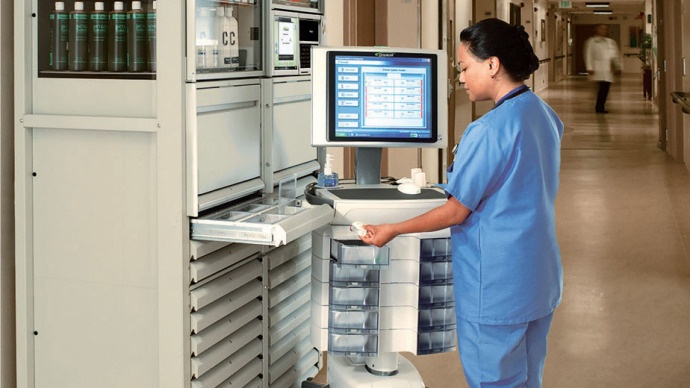
Demand for New Nursing Roles
As more hospitals face budget cuts and staff shortages, and HCAHPS scores are becoming more important for reimbursement, nurses’ roles in the hospital setting are expanding. Healthcare systems are increasingly turning to nurses as leading voices for technology implementation and caregiving expertise.
A Clinical Nurse Leader (CNL), a certification first introduced in 2003 by the American Association of Colleges of Nursing, is an advanced generalist who works as an integrator for the healthcare team, facilitating, coordinating and overseeing care across multiple disciplines. The CNL role was designed to address issues such as patient safety and outcomes, quality of care, and medical errors.
An increasing number of CNLs is just one example of the increasing opportunities afforded to nurses in today’s healthcare system. We also see a growing clinical role for these individuals, as provider status is being given to nurse practitioners in many states. Regardless of title, new opportunities target the ways to maximize efficiency across all aspects of patient care while improving outcomes.
Nursing Leadership in Technology
When it comes to choosing technology to improve patient care, more facilities are turning to those whose knowledge and education extends beyond traditional IT. Chief Nursing Information Officers (CNIOs) are being hired at accelerated rates for the purpose of executing successful EHR installations and helping shape organizational technology strategies.
As nurses are the most frequent users of EHRs, CNIOs can offer insight into the best platforms in terms of functionality and optimized workflows for frontline care teams. Currently, 92 percent of nurses feel that their current EHR systems do not improve the quality of patient information, which is key for providing a safe healthcare environment. It’s important that all nurses, not just CNIOs, have a voice when implementing new Health IT services and policies.
As Rebecca Freeman, PhD, RN, PMP, and CNO for the Office of the National Coordinator for HIT, says in her blog post, “Success is often less about the ‘IT’ itself and more about implementation, documentation, culture, analytics, training, workflows, and interdisciplinary engagement.”
The Toll on Nurses
As the most patient-facing discipline in the hospital, nursing can be a physically and mentally taxing profession with long shifts, emotionally challenging situations, and long hours spent on feet. A fatigued and stressed nursing staff can lead to a decrease in quality of care and patient satisfaction.
While stress-reducing methods for the health and wellbeing of caregivers have traditionally focused primarily on physicians, hospitals are realizing how important it is to provide solutions that lessen nurse fatigue and stress.
To help promote overall wellbeing for nurses, hospitals are exploring varying solutions including:
- Allowing nurses the time to recharge by taking a short nap or brief walk
- Implementing a buddy system where nurses partner with other nurses to watch for signs of fatigue
- Increasing the number of nursing staff
- Using creative scheduling techniques with shorter shifts and proactive planning to limit excessive overtime or double shifts for nurses
By implementing these changes, hospitals can reduce stress, alleviate fatigue, and ultimately help prevent physical exhaustion for their nurses, which can result in better patient care.
When the physical and emotional needs of healthcare professionals are met, everyone stands to gain. To be the best you can be for your patients, try to get some rest and relaxation during Nurses Week this year. And on behalf of all of us at Omnicell and Pocket Nurse, thank you for all that you do.

This post was written by Omnicell, a leader in medication and supply dispensing automation, central pharmacy automation, IV robotics, analytics software, and medication adherence and packaging systems. Omnicell is focused on improving care across the entire healthcare continuum—from the acute care hospital setting, to post-acute skilled nursing and long-term care facilities, to the patient’s home. Omnicell helps Pocket Nurse bridge the academic preparation of nursing students with real-world experience by providing medication management technology used by nurses in the majority of hospitals across the country.






